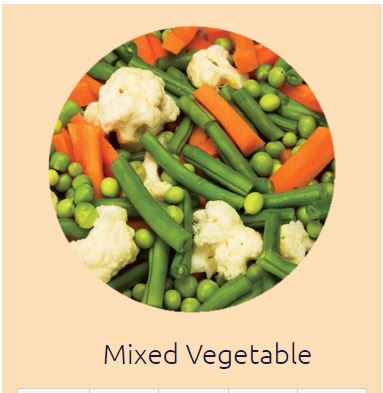
Making meals for your own baby is always beneficial. It helps economically and also lets you keep a track of the nutrients and its quantity that go to your baby’s stomach. While fresh and unprocessed foods are considered to be most nutritious for feeding babies, let us tell you that it is a myth, and myth only. Frozen foods are nutritious and healthy for babies to consume and also have equal amounts of nutritional value.
Frozen Veggies Are Actually More Nutritious Than Fresh Veggies
Although it may come as a surprise, our above statement is true. Innumerable surveys conducted have revealed that parents preparing baby food with frozen mix vegetables often feel like they are cheating on their child. But let us break this myth, today! In certain circumstances, frozen veggies are way more nutritious than their fresh counterparts.
This is primarily because the place where vegetables are frozen are located in proximity to the vegetable production area. This considerably reduces the transportation time leading to the optimum retain of the nutritional value of the vegetables.
The processes of freezing vegetables involve blanching where they are slightly cooked so that they do not turn brown when frozen. Although this process may cause some loss of Vitamin C, Vitamin B1 and folate. However, once they are frozen, vitamins or minerals are no longer lost.
Moreover, fresh veggies deteriorate in nutritional value too. In fact, they start deteriorating right from the time they are picked. For instance, frozen green vegetables have more Vitamin C content as compared to fresh green vegetables which begin to deplete more quickly by the time they are placed on supermarket shelves.
On top of this, frozen mix vegetables which contain carotene are also stored well as they are protected from light which causes depletion in the nutrient. Since frozen vegetables undergo “flash freezing”, which means that they are frozen quickly, it helps retain nutrients. Researches have revealed that fresh vegetables that are stored in refrigerators and pantries for three or more days have lost a considerable amount of nutrients, especially vitamins and minerals, and this basic idea makes frozen vegetables more nutritious.
Overall, frozen foods or frozen mix vegetables are as nutritious as the fresh ones. Since fruits and vegetables are picked at their peak and frozen immediately, they retain all their nutrients longer. So, while making baby food with frozen veggies, all you need to do is thaw the veggies and puree them. This helps your baby to get the benefits of all the vitamins and minerals. Even though frozen foods can be expensive, they do allow you to feed it to your children- especially when they are not in the season.
